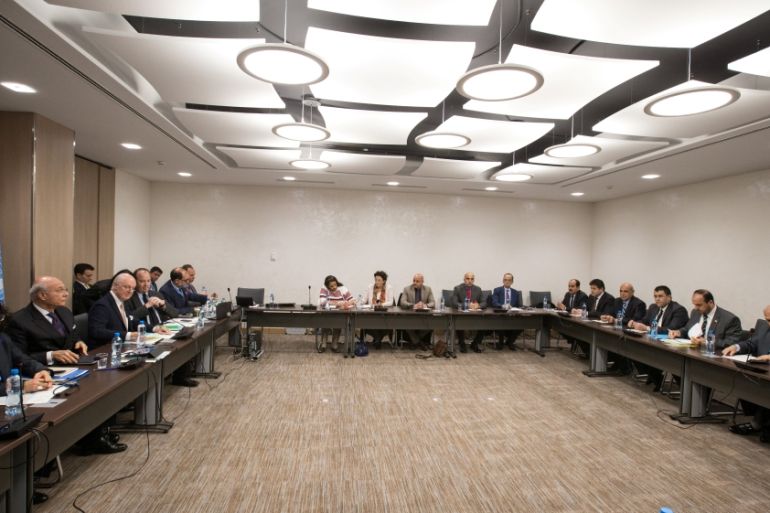Syrian opposition seeks direct Geneva talks with regime
Government rejects possibility of direct negotiation with opposition until calls for Syria without Assad are over.

The Syrian opposition has said it wants direct talks with the government, as it attends a fresh round of meetings in Geneva to discuss political transition.
Al Jazeera’s Maan Khader, reporting from the Swiss city, said that the Syrian opposition perceives what was left of the Geneva talks as an opportunity to engage in direct negotiation with the government.
The opposition pledged to take the matter seriously in remarks after the UN envoy for Syria, Staffan de Mistura, conveyed the government’s refusal to engage in direct negotiations until the topic of Syrian President Bashar al-Assad‘s fate was off the table.
De Mistura mediated between the two sides, and proposed to move discussions on the Syrian constitution and possible elections to a conference scheduled to take place in Russia’s Black Sea resort of Sochi, early next year.
But when asked of the upcoming event, opposition spokesperson Firas al-Khaldi told Al Jazeera that the group was not interested in discussing the Sochi conference’s agenda.
He further pointed out that the group would only partake in the Sochi conference if its agenda included a plan to achieve political transition, to guarantee the return of Syrian refugees, and to look into the question of detainees in government-held prisons.
Geneva talks are expected to last until December 15.
Latest battles in Syria
On the ground in Syria, at least three people were killed in government forces’ shelling of the banks of the eastern Euphrates in al-Shaafah town area, the Syrian Observatory for Human Rights said on Tuesday.
The war monitor also said there were violent clashes in the eastern countryside of Deir Az Zor city. There was no information available on the number of casualties.
East of the Euphrates River, the Observatory monitored violent confrontations between the Syria Democratic Forces – an alliance backed by the United States – and the Islamic State of Iraq and the Levant (ISIL, also known as ISIS), in which the latter lost control of a village on the eastern bank.
The Observatory said ISIL now controlled only 17 villages and towns east of the Euphrates.